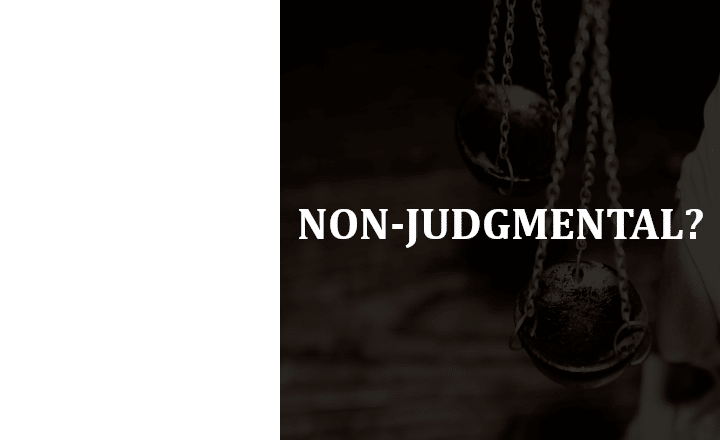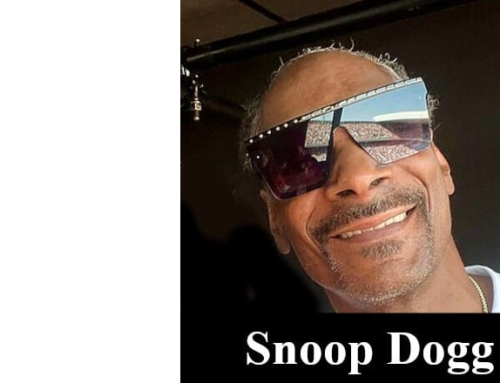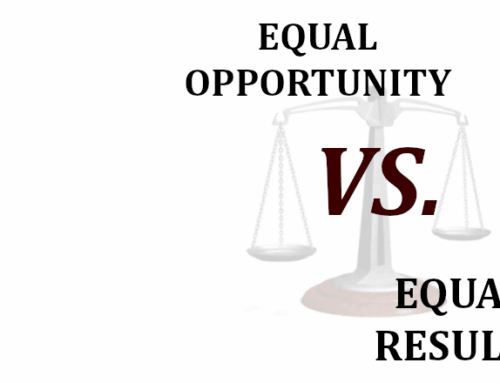July 14, 2025
We’ve all dealt with scolds, highly judgmental finger-pointing people who are quick to call us out for some alleged moral outrage. They are annoying, to put it mildly. The corrective, however, is not to become the polar opposite, which is to be non-judgmental about practically everything. The extremes, as usual, are no good.
It is not the scolds who are the big problem these days; it’s the non-judgmental types. Their smugness is sickening—they like to lord over us as the high priests of tolerance and open-mindedness. More important, there are times when to withhold judgment is not only not virtuous, it is morally offensive. To cite one example: If we can’t summon the moral courage to unequivocally denounce genocide, then we need to reset our moral compass.
Artificial intelligence tells us that “Being non-judgmental fosters understanding and improves relationships.” To be sure, this is true in some cases. But if the issue is incest, then fostering an understanding may actually impede our ability to condemn. More to the point, it is absurd to think that being non-judgmental about mother-son sexual relationships is virtuous.
Other internet sites imply that making judgments suggests a character disorder. “Why do you feel the need to judge? It’s time for some introspection. You need to be honest with yourself and unwrap why you feel the need to judge other people.”
So when parents tell their children it’s time to retire their phone, or turn off the TV, and start doing their homework, they need to look in the mirror and ask themselves why they feel the need to judge? The truth is parents who are not judgmental about such things are delinquent in their duties. And by the way, is not the decision not to judge a judgment call?
In some Catholic quarters, it is fashionable to cite Pope Francis as a beacon of non-judgmentalism. After all, they say, it was he who famously said about homosexuality, “Who am I to judge?”
Wrong. He never said that about homosexuality. Homosexuality is conduct, a behavior proscribed by the Bible and the Catholic Catechism, and the pope never said it wasn’t sinful. But being a homosexual is morally neutral—it is no more sinful than being a heterosexual.
Pope Francis was referring to the status of someone who is a homosexual, and in this particular case it was about a priest who had been accused, but not found guilty, of a sexual offense. To his credit, the pope chose his words very carefully. What he said before, and after, those five words, “Who am I to judge?”, matters greatly.
“If someone is gay and he searches for the Lord and has good will, who am I to judge him?” (My italics.) The qualifiers, and the object of his remark, provide a very different picture than the one falsely promoted by “non-judgmental” savants.
When non-judgmentalism becomes a crusade, it carries the seeds of moral relativism, one of the most destructive, indeed lethal, ideas in history.
In his classic book, Modern Times, Paul Johnson, the great English Catholic historian, argued that the astounding violence and cultural corruption that marked the twentieth century was a function of moral relativism, the notion that there are no moral absolutes, just opinions. It was after World War I, he said, that moral relativism triumphed. Notions of right and wrong were no longer seen as a cultural expression, grounded in our Judeo-Christian heritage. No, they were merely a matter of whim.
Hitler said, “There is no such thing as truth, either in the moral or in the scientific sense.” He made good on his ethics. He killed with abandon, never flinching from his convictions. In this regard, he was following the wisdom of Nietzsche, who opined, “There are no facts, only interpretations.” Once truth and facts are seen as mere opinions, it allows some to think that putting Jews into ovens is the right thing to do. After all, “Who are we to judge”?
The Institute for Historical Review (IHR) is a contemporary example of this view. It spends most of its time trying to belittle, if not deny, the Holocaust. It maintains that this is not an accurate account, but anyone who has read its work knows better. “The IHR does not ‘deny’ the Holocaust. Indeed, the IHR as such has no ‘position’ on any specific event or chapter of history, except to promote greater awareness and understanding, and to encourage more objective investigation.”
Why lie? Why the need to put the word deny in quotes, as if it were debatable? Similarly, any organization that takes no position on the Holocaust means it would not object if another Hitler emerged with his Final Solution plans.
The intentional killing of millions of innocent people is morally abhorrent. If that is being judgmental, so be it. There are times when being non-judgmental makes sense, but as a universal rule it is morally debased. Even deadly.









